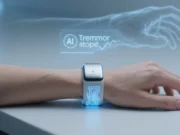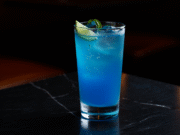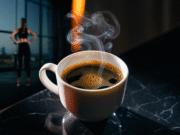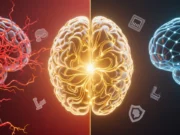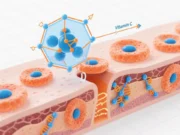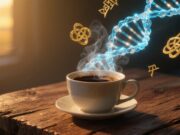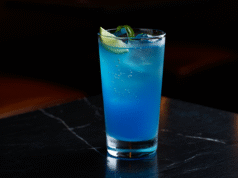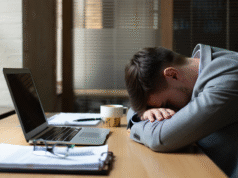How AI-Powered Soundscapes and Personalized Audio Are Solving the $680 Billion Global Sleep Crisis—One Note at a Time
Why the latest sleep research is calling music therapy the “non-pharmacological breakthrough” that could transform how 27% of the world sleeps tonight…
So, It’s 2 AM, and you’re lying awake for the third night this week, your mind racing despite your exhausted body. Sound familiar? You’re not alone—and 2025 might finally have the answer you’ve been searching for.
While the world spent billions on sleep aids and gadgets, researchers quietly discovered something remarkable: the right music, delivered at precisely the right moment, could revolutionize sleep better than any pill or device ever created.
Welcome to the 2025 Sleep Revolution—where artificial intelligence meets ancient melodies to create the most personalized lullabies humanity has ever heard.
The Hidden Sleep Crisis Destroying Lives (And Bank Accounts)
Here’s a statistic that will keep you up at night: 27% of the global population suffers from sleep issues, leading to everything from depression and cognitive decline to a staggering economic impact that researchers estimate in the hundreds of billions annually.
But 2025 has brought us something unprecedented—a meta-narrative review analyzing 27 studies that confirms what sleep scientists have suspected for years: music therapy significantly improves subjective sleep quality by targeting the root causes of sleeplessness.
The breakthrough? It’s not just about relaxation anymore. It’s about precision.
The AI Revolution That’s Rewriting Sleep Medicine
Forget everything you thought you knew about bedtime playlists. The Global Wellness Institute’s 2025 Sleep Initiative reveals that AI-powered sleep solutions are revolutionizing sleep research, consumer tech, and hospitality in ways that seemed like science fiction just five years ago.
Here’s what’s happening right now in sleep labs and bedrooms around the world:
The VIV Ring: Your Personal Sleep DJ
Debuted at CES 2025, the VIV Ring generates personalized sleep aid sounds based on your real-time biometric data. Think of it as having a world-class composer create your lullaby in real-time, adjusting tempo, frequency, and tone based on your heart rate, breathing patterns, and sleep stage.
The science behind it? Drawing from a carefully curated library of “green noise”—sounds like running water and rustling leaves—each audio experience is crafted to match your body’s exact needs at that moment.
Loona App: Where Neuroscience Meets Storytelling
The 2025 update of the Loona app now features AI-curated story paths that adapt based on your mood and sleep history. It’s like having a therapist, meditation guide, and audio artist rolled into one personalized experience.
What makes this revolutionary? The app learns from your sleep patterns and emotional responses, creating increasingly effective audio experiences that evolve with your needs.
The Shocking Truth About Sleep Anxiety (And Why Music Is the Antidote)
2025 has revealed a hidden epidemic: sleep anxiety. Nearly 40% of Gen Z adults report sleep-related anxiety at least three times a week—a staggering increase from previous generations.
The culprit? Our 24/7 digital world, economic uncertainty, and ironically, sleep tracking devices that create “orthosomnia”—an obsession with achieving perfect sleep that actually makes sleep worse.
The solution emerging from 2025 research? Music therapy targets the exact psychological pathways that fuel sleep anxiety.
How Music Rewires Your Anxious Brain
Recent research published in Frontiers in Neurology reveals that music therapy works by:
- Alleviating anxiety through perceptual pathways
- Regulating mood via direct neurological responses
- Activating the parasympathetic nervous system to reduce heart rate and blood pressure
- Creating predictable patterns that anxious minds crave
Dr. Qiaoqiao Gou, lead researcher on the comprehensive sleep music analysis, explains:
“Music therapy significantly improves subjective sleep quality, largely by alleviating anxiety and regulating mood through perceptual pathways.”
The 60-80 BPM Sweet Spot: Why Your Heart Knows the Right Rhythm
Here’s where the science gets fascinating. Research consistently shows that music with tempos of 60-80 beats per minute—matching a relaxed heart rate—creates the optimal conditions for sleep onset.
But 2025’s breakthrough isn’t just about tempo. New AI systems analyze:
- Your current heart rate variability
- Breathing patterns
- Stress hormone levels (through wearable sensors)
- Environmental factors like room temperature and noise
- Personal music preferences and cultural background
The result? Audio experiences so precisely calibrated to your biology that they can guide your nervous system into sleep states with unprecedented accuracy.
The Hotel Industry’s $680 Million Bet on Sleep Music
The hospitality industry has taken notice. A 2024 survey revealed that 91% of frequent travelers are willing to pay up to 10% more for sleep-enhancing accommodations.
The response? Luxury wellness retreats like Sensei Porcupine Creek now combine cutting-edge biometric tracking with science-backed sleep coaching, while Carillon Miami Wellness Resort offers AI-powered smart beds that adjust not just temperature and firmness, but also deliver personalized soundscapes based on your sleep data.
Six Senses properties provide specialized ‘sleep programs’ with personalized audio consultations, integrating circadian lighting with custom-composed music that adapts throughout your sleep cycle.
The Muse S Gen 3: Reading Your Brain’s Sleep Signals
Perhaps the most remarkable innovation of 2025 is the Muse S (Gen 3) headband, which provides real-time biofeedback on brain activity, heart rate, and breathing.
Here’s what makes it revolutionary: The device features guided meditations that adjust live based on your brainwaves, helping you enter a sleep-ready state by monitoring your exact neurological responses to different audio stimuli.
The result? Music that literally harmonizes with your brain’s electrical patterns to induce sleep.
Why Traditional Sleep Aids Are Becoming Obsolete
While the pharmaceutical industry continues pushing sleep medications with concerning side effects, 2025’s music therapy research reveals something remarkable: the effects go far beyond simple relaxation.
Studies analyzing 27 different research projects show that music therapy addresses sleep issues at multiple levels:
Physical Benefits:
- Reduced heart rate and blood pressure
- Decreased stress hormone production
- Improved breathing patterns
- Enhanced immune system function
Psychological Benefits:
- Anxiety reduction without medication
- Mood regulation through natural pathways
- Improved emotional processing
- Enhanced sense of control and well-being
Neurological Benefits:
- Optimized brainwave patterns for sleep
- Enhanced melatonin production
- Improved sleep architecture
- Better memory consolidation during sleep
The Personalization Revolution: Why One-Size-Fits-All Failed
2025’s biggest breakthrough isn’t just that music helps sleep—it’s that individual differences play a significant role in effectiveness. This explains why your friend’s favorite sleep playlist might keep you wide awake.
Key factors affecting music therapy success:
- Age and generation (different neural responses to familiar vs. new sounds)
- Cultural background (rhythm preferences vary dramatically across cultures)
- Psychological status (anxiety levels, depression, stress patterns)
- Lifestyle factors (work schedules, exercise patterns, diet)
- Environmental considerations (urban vs. rural sound tolerance)
The End of Generic Sleep Playlists
AI-powered platforms like Sleep Reset now offer personalized cognitive behavioral therapy for insomnia (CBT-I) programs that integrate with smartwatches for real-time audio adjustments based on your exact sleep patterns.
Pzizz, beloved by top athletes and performers, uses psychoacoustic principles with 2025’s updated dynamic audio adjustments that learn from your individual response patterns.
The Science of Sound: What Your Brain Craves at Bedtime
Recent research reveals that effective sleep music goes beyond relaxation—it creates specific neurological conditions that prepare your brain for restorative sleep.
Green Noise: Nature’s Sleep Secret
Unlike white or pink noise, green noise—sounds like rustling leaves, gentle rain, or flowing water—specifically activates the regions of your brain associated with deep, restorative sleep.
Binaural Beats: Hacking Your Brainwaves
2025’s most sophisticated sleep apps use binaural beats—slightly different frequencies played in each ear—to guide your brainwaves from active beta states through relaxed alpha, drowsy theta, and finally into the delta waves of deep sleep.
Harmonic Resonance: When Your Body Becomes the Instrument
Cutting-edge research shows that certain musical frequencies create harmonic resonance with your body’s natural rhythms, essentially turning your entire physiology into a sleep-inducing instrument.
Breaking: The Future That’s Already Here
While we’ve focused on 2025’s innovations, the most exciting developments are already in beta testing:
Coming in Late 2025:
- Neuro-responsive smart homes that adjust lighting, temperature, and audio based on your brain’s sleep readiness
- Pharmaceutical-grade audio prescriptions calibrated to specific sleep disorders
- Couples’ sleep synchronization technology that creates harmonized soundscapes for partners with different sleep needs
The Sleep Divorce Solution
With 35% of Americans now sleeping separately from their partners due to sleep issues, personalized audio therapy offers a solution: synchronized but individualized soundscapes that allow couples to sleep together while receiving personally optimized audio.
The Economic Impact: Why This Matters Beyond Better Sleep
Poor sleep costs the global economy an estimated$680 billion annually in lost productivity, healthcare costs, and accidents. If music therapy can address even a fraction of this crisis, we’re looking at:
- Reduced healthcare costs from fewer sleep-related medical issues
- Increased workplace productivity from better-rested employees
- Decreased accident rates from improved cognitive function
- Enhanced quality of life for millions of people worldwide
The Controversy: Why Some Experts Remain Skeptical
Not everyone is convinced. Critics point out that while subjective sleep quality improves dramatically with music therapy, objective sleep measures remain inconclusive.
Dr. Sarah Chen, a sleep researcher at Stanford, cautions:
“While people report feeling better rested, we need more data on whether music therapy actually changes sleep architecture—the deep structures of sleep that determine its restorative power.”
The response from 2025’s researchers? New studies integrating both subjective and objective sleep assessments are already underway, with results expected to provide definitive answers by 2026.
Your Sleep Revolution Starts Tonight: What You Can Do Now
You don’t need to wait for the latest gadgets to start benefiting from music therapy. Here’s how to begin your personal sleep revolution:
Immediate Actions:
- Download a science-backed app like Sleep Reset or Loona
- Experiment with 60-80 BPM music 30 minutes before bedtime
- Try green noise instead of traditional white noise
- Create a consistent audio routine that signals sleep time to your brain
Investment-Level Solutions:
- Consider an Oura Ring Gen 4 for personalized sleep tracking
- Upgrade to a smart mattress with integrated audio (Eight Sleep Pod 4 Ultra)
- Install circadian lighting that syncs with your audio routine
- Invest in high-quality sleep headphones designed for side sleepers
Professional Consultation:
If you have chronic sleep issues, consider working with a sleep specialist who incorporates music therapy—a growing field as more medical professionals recognize its evidence-based benefits.
The Bottom Line: Your Sleep, Revolutionized
2025 marks the tipping point where music therapy transitions from alternative treatment to mainstream medicine. The convergence of AI, neuroscience, and audio technology has created personalized sleep solutions that our grandparents could never have imagined.
The choice is yours: Continue struggling with outdated sleep aids and generic solutions, or embrace the personalized, science-backed audio revolution that’s already transforming millions of lives.
Because in 2025, the question isn’t whether music can help you sleep better—it’s how quickly you’ll start using it.
Sweet dreams aren’t just a wish anymore. They’re a precisely engineered audio experience, calibrated to your unique biology, and available at the touch of a button.
The sleep revolution has begun. Will you be part of it?
Sources:
- Meta-narrative review: Impact of music therapy on sleep – PubMed
- Music therapy for sleep: Full research review
- Music for Health and Wellbeing Trends 2025
- Sleep Initiative Trends for 2025 – Global Wellness Institute
- Top 10 Sleep Apps and Gadgets for 2025
- Best sleep tech from CES 2025 – Tom’s Guide
- Future of Music Therapy: Innovations and Technology
- Music Therapy and Health Outcomes – Nature
- Sleep therapy research analysis


